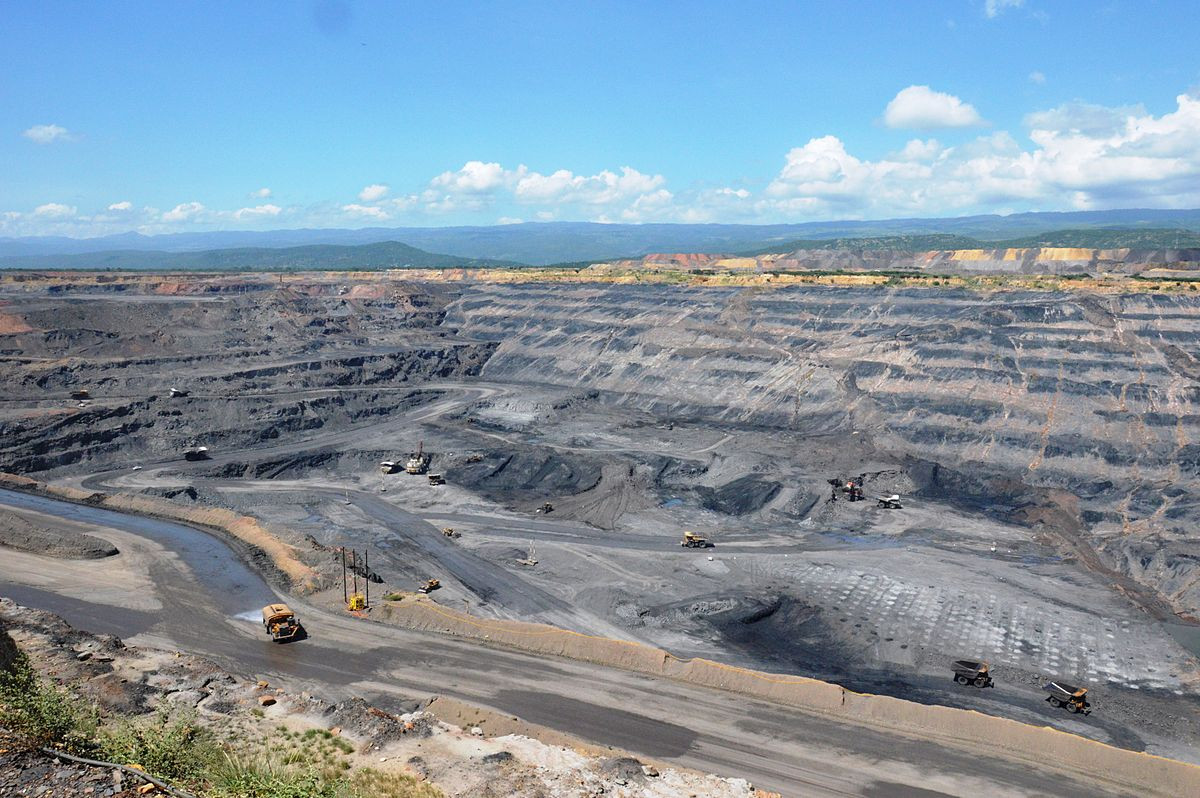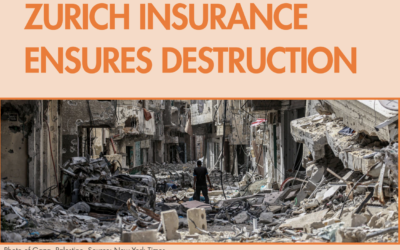Insurance exclusion policies drive coal mine closurES
27 June 2025, Bern, Switzterland – A major new study from the University of Zurich shows what BreakFree, Campax and the Insure Our Future coalition have long argued: that insurance exclusions are among the most powerful tools to accelerate the phase-out of fossil fuels. The study shows that when insurers adopt coal exclusion policies, coal mines are more likely to scale back or shut down entirely.
BreakFree welcomes this news as vital proof that climate campaigning works. Our collective pressure on insurers is delivering real-world results.

El Cerrejon open-pit coal mine in Northen Colombia. Image by GLAN.
This week, Colectivo Jaguar and the Swiss Coalition Against Glencore are hosting Ines Pérez, legal representative of the Tabaco community in Colombia. In 2001, her and her family were violently evicted from their land when the El Cerrejón coal mine—one of the world’s largest open-pit coal mines owned by Glencore—expanded into their village. Their homes were destroyed to make way for coal extraction that continues to poison the water, devastate health, and fuel the climate crisis. Till this day she was never able to return to her home and her and her community have never been compensated.
El Cerrejón is just one example of the destruction coal mines leave in their wake. Without insurance, mines like Cerrejón could not operate. That’s why for years, BreakFree, Campax and the Insure Our Future coalition have pushed insurers to cut ties with coal, oil, and gas projects. This new study confirms that our pressure is working—and that exclusion policies lead to measurable, real-world decarbonisation.
Key Findings
1. Coal exclusion policies cause real reductions in insurance coverage
On average, when insurers adopt formal coal exclusion policies:
- The number of insured coal mines drops by 16%.
- The volume of insured coal falls by 56%.
2. Insurance loss triggers operational decline in coal mines
Mines that lose insurance are significantly more likely to:
- Be abandoned.
- See production fall.
- Cut jobs or shut down entirely.
BreakFree welcomes this outcome—because a safe future depends on moving away from destructive fossil fuel industries. However, we are equally committed to ensuring this transition happens fairly. Climate justice means no one is left behind. That’s why we strongly advocate for a just transition for all workers affected by the phase-out of fossil fuels — including support for reskilling, job guarantees, and investment in sustainable, community-led alternatives.
Ending fossil fuel insurance is crucial — but it must go hand-in-hand with justice for workers and frontline communities.
- Policy adoption is growing—but often vague or inconsistent
- Since 2017, insurers have increasingly adopted underwriting exclusions, especially for coal.
- Oil and gas exclusions have only started to emerge from 2020.
- European insurers lead; many U.S. and Asian insurers continue to lag.
- Many policies are too weak, excluding only specific projects instead of whole companies.
- Some insurers even increase coal coverage after adopting policies, exposing serious gaps in implementation and accountability.
- Insurers’ investment policies don’t always match up to their underwriting policy, showing inconsistent climate commitments.
Why this matters
This is the first causal evidence that insurance decisions impact fossil fuel operations. It confirms what campaigners have long said: ending insurance coverage is one of the fastest and most effective ways to drive down coal production and emissions.
As the world accelerates the coal phase-out, the message to insurers is clear: vague policies are not enough—and oil and gas must be next.
We hope this shift means fewer communities like Ines’s will be displaced and harmed by fossil fuel expansion in the future.
—
See Insure Our Future’s updated demands for the insurance industry: https://global.insure-our-future.com/about/#demands
Read the full study “Insurers’ Carbon Underwriting Policies”: https://papers.ssrn.com/sol3/papers.cfm?abstract_id=5285182



